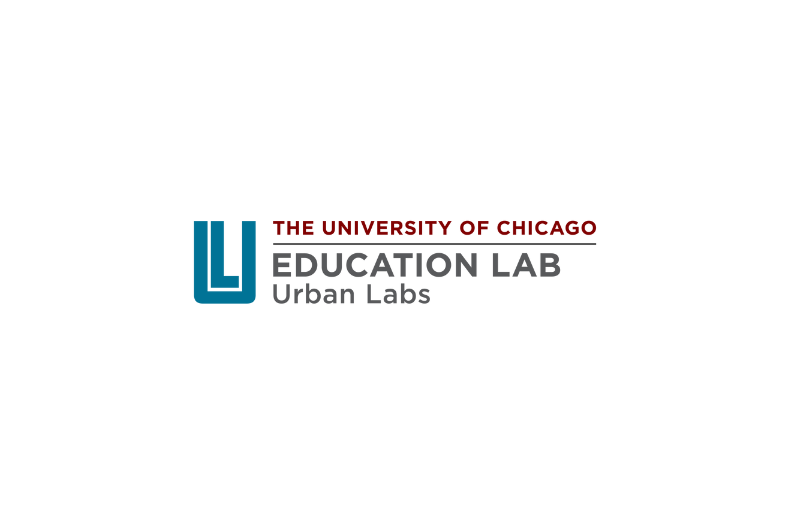CHICAGO, IL – The University of Chicago Education Lab and MDRC today released preliminary results from their Personalized Learning Initiative (PLI), which found that in-school high dosage tutoring is leading to large and positive effects on student learning in math – even when delivered in the aftermath of the pandemic and in diverse academic settings.
The key lesson from this research is that delivering tutoring during the school day – as opposed to ad-hoc, “on demand,” or after school – seems critical to realizing large gains in student learning. Approximately 2,000 students in Chicago Public Schools (IL) and Fulton County Schools (GA) who participated in districtwide in-school tutoring during the 2022-23 school year saw meaningful improvement in math learning. The results for reading scores are not yet conclusive. These results provide a contrast to out-of-school tutoring efforts in two other sites, in which student participation was too low to conduct a rigorous study in 2022-23. These results are among the first indications that in-school high dosage tutoring, done at scale, can effectively counteract pandemic-era learning setbacks.
The data used to determine the preliminary results only covers a portion of the expected final study sample, which will be available after this school year. The Education Lab and MDRC are actively learning from these data to better inform implementation and ultimately accelerate student learning.
Research has highlighted the promise of high dosage tutoring and earned the endorsement of U.S. Education Secretary Cardona. In addition, President Biden’s recently launched Improving Student Achievement Agenda centered Education Lab research to expand support for high dosage tutoring.
“We’ve seen firsthand the incredible impact of high dosage tutoring on Chicago students,” said Pedro Martinez, CEO of Chicago Public Schools. “We are proud to be a founding partner of the Personalized Learning Initiative and look forward to helping other school systems across the country follow in our footsteps.”
Prior research from the University of Chicago Education Lab in partnership with Saga Education found that high dosage tutoring can double or even triple student learning in a single academic year. But challenges such as cost and hiring have made it difficult for school districts to implement and scale high dosage tutoring – even with an influx of federal funding. To overcome these barriers, the PLI works with our
partners to launch, scale, and evaluate high dosage tutoring programs. To date, the PLI has allocated more than $5 million to fund the delivery of tutoring in partner sites. This includes funding outside providers that help address implementation challenges, such as scheduling tutoring sessions and optimizing the use of educational technology.
“As our students and policymakers continue to struggle with pandemic-era learning loss, the PLI represents a once-in-a-generation opportunity to boost learning and close longstanding gaps in student achievement,” said Dr. Jens Ludwig, faculty co- director of the University of Chicago Education Lab. “The Education Lab is proud to work alongside our partners in determining how to cost-effectively deliver one of the most promising learning interventions to a student population in urgent need of support.”
As a testament to these promising results, the PLI is continuing partnerships with sites in Illinois, Georgia, and New Mexico and has launched new partnerships during the 2023-2024 school year with school districts in California, Florida, North Carolina, and South Carolina. The expansion of the PLI will allow for continued analysis of different types of tutoring programs, including varied student-to-tutor ratios, management practices, and student time with technology as schools work to expand high dosage tutoring programs. The PLI will also create a ‘playbook’ for districts nationwide, detailing how tutoring can be scaled up in different settings and at the lowest cost possible for each student while maintaining effectiveness.
“We are excited to see growing evidence supporting the effectiveness of high dosage tutoring,” said Kevin Huffman, CEO of Accelerate, a partner in this study. “While this research is ongoing, it is important for school leaders and school system leaders to have access to interim reports as they continue to make hard decisions about how to address disparities in learning outcomes. We appreciate the leadership of the Education Lab and MDRC in this important and timely initiative and look forward to learning more from the future years of this project.”
The PLI receives substantial support from Accelerate – The National Collaborative for Accelerated Learning, which is supported by Citadel founder and CEO Kenneth C. Griffin and Griffin Catalyst; Arnold Ventures; the Bill & Melinda Gates Foundation; the Overdeck Family Foundation; and the Walton Family Foundation. Additional funding comes from the AbbVie Foundation, Crown Family Philanthropies, Citadel founder and CEO Kenneth C. Griffin and Griffin Catalyst, IMC Chicago Charitable Foundation, and Vivo Foundation.
Media Contact: Sarah Rand, srand@uchicago.edu, 312-513-1035
This is a sponsored message and does not necessarily represent the views of the Education Writers Association, its board of directors, or its members. Want to see your release on the EWA site? Promote it with EWA.
